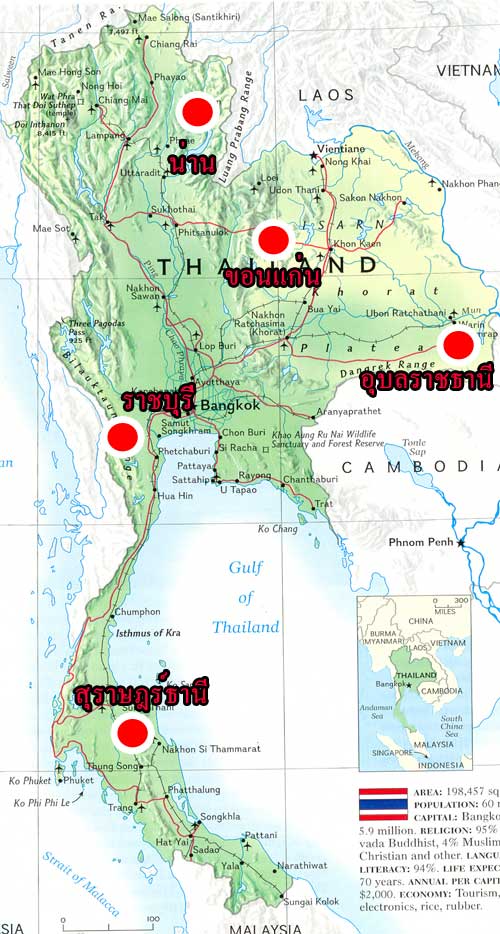
Witoon Lienchamroon, director of BioThai, a non-profit group that works to protect farmers’ rights and bio-diversity, said the patent would set a precedent that might aid developed countries more advanced in biotechnology and intellectual property rights to exploit the biological resources of Thailand.
“This government has to prove that it can protect the countries’ resources and local wisdom much better than the previous government,” Witoon said yesterday.
The US Patent and Trademark Office (US-PTO) recently issued patent protection to Cornell Research Foundation Inc, Dennis Gonsalves, its director, and his team, over its “invention” of GM papaya that was developed from khaek dam and khaek nual Thai native papaya varieties. The patent covers the genetic pattern and “all scientific methods related to” the production of a novel papaya variety that is resistant to papaya ringspot virus. The Agriculture Department says ringspot virus is a major threat to papaya.
Jade Donovanik, an expert in intellectual property rights, said the patent would not cause Thai farmers to pay patent fees if they grew the GM papaya because the patent holders had exclusive rights only in the US and countries that issue patent protection to the rights holders.
“However, we cannot export the papaya to the US and other countries where patent protection is issued to the team,” he said.
Jade, the dean of Siam University’s faculty of law, said Gonsalves had one year from the date the US-PTO issued him the patent to submit an application for patent protection to Thailand’s Intellectual Property Department.
The GM papaya was developed under a collaboration programme between the Cornell Research Foundation Inc and the Agriculture Department in 1994. Two Thai government researchers took khaek dam and khaek nual papayas, plus the papaya ringspot virus, to the research institute for lab tests.
Agriculture Department chief Adisak Srisunpakit said he had learnt about the patent certification and tried to bargain that Thai researchers should hold the patent also. But his request was rejected by the research institute.
